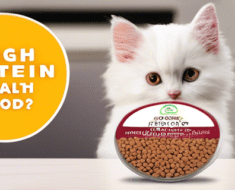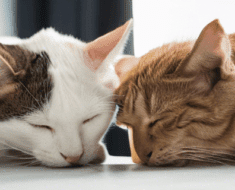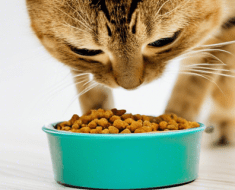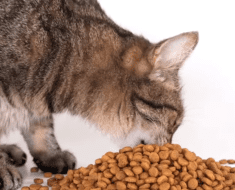Are you a cat lover who wants the best for your furry friend? One of the most crucial aspects of cat care is ensuring their urinary health. Just like humans, cats can suffer from urinary tract issues, and their diet plays a significant role in preventing or managing these problems. In this comprehensive guide, we’ll explore everything you need to know about selecting the right cat food for urinary health, so your feline companion can live a happy and healthy life.
1. Understanding Urinary Health in Cats
As a cat owner, you understand the joy and companionship these beautiful creatures bring into our lives. This is your responsibility to know what cat food is good for urinary health. But along with the cuddles and purrs, there’s a responsibility to ensure their well-being, including their urinary health. Cats, just like us, are prone to urinary tract issues, which can be painful and distressing for them. Understanding how their urinary system works and what can go wrong is the first step in providing them with the care they need.
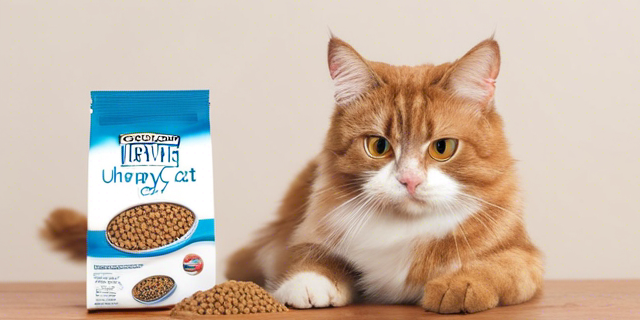
2. Common Urinary Issues in Cats
Have you ever noticed your cat urinating more frequently than usual or straining in the litter box? These could be signs of urinary issues, which are distressingly common among our feline friends. From urinary tract infections to bladder stones, cats can suffer from various conditions that affect their urinary system. Recognizing these signs early on and seeking veterinary attention is crucial for their health and happiness.
3. Importance of Diet for Urinary Health
Imagine if every meal you ate could either contribute to your well-being or harm it. That’s the reality for our cats when it comes to their diet and urinary health. The food they consume plays a pivotal role in maintaining the balance of their urinary system. By providing them with the right nutrients in the right proportions, we can help prevent urinary issues and support their overall health and vitality.
4. Key Nutrients for Urinary Health
When it comes to urinary health, certain nutrients deserve special attention. Adequate hydration, high-quality protein, and balanced mineral levels, particularly magnesium, are essential for keeping your cat’s urinary system in tip-top shape. These nutrients work together to maintain proper pH levels in the urine, dissolve crystals, and prevent the formation of bladder stones.
5. Characteristics of Good Cat Food
Not all cat foods are created equal, especially when it comes to urinary health. Look for formulas that prioritize quality ingredients and are specifically formulated to support urinary tract health. These foods typically contain higher moisture content, moderate levels of magnesium, and ample protein from sources like chicken, turkey, or fish.
6. Tips for Choosing the Right Cat Food
With so many options available, choosing the right cat food can feel overwhelming. Consider your cat’s age, weight, activity level, and any existing urinary health issues when selecting a formula. Consult with your veterinarian for personalized recommendations tailored to your cat’s unique needs.
7. Reading Cat Food Labels
Navigating the aisles of the pet food store can be daunting, but understanding how to read cat food labels can help you make informed choices. Look for brands that list real meat as the first ingredient and avoid products containing artificial additives, fillers, or excessive amounts of magnesium.
8. Homemade vs. Commercial Cat Food
The debate between homemade and commercial cat food has been ongoing, with passionate advocates on both sides. While homemade diets allow for greater control over ingredients, they require careful planning to ensure nutritional balance. Commercial cat foods, on the other hand, offer convenience and peace of mind, with many brands offering formulas specifically designed for urinary health.
9. Introducing Dietary Changes to Your Cat
Switching your cat’s food can be a sensitive process, so it’s essential to introduce dietary changes gradually. Mix small amounts of the new food with their current diet and gradually increase the proportion over several days. Monitor their response closely and consult with your veterinarian if you have any concerns.
10. Monitoring Your Cat’s Urinary Health
Once you’ve found the perfect cat food for urinary health, your job isn’t done yet. Regular monitoring is key to ensuring your cat maintains optimal urinary health. Keep an eye on their litter box habits, watch for any changes in behavior, and schedule routine check-ups with your veterinarian to assess their urinary health and make adjustments to their diet if necessary.
Conclusion
As cat owners, we have a responsibility to provide our feline companions with the best possible care, and that includes paying attention to their urinary health. By understanding the importance of diet, selecting high-quality cat food, and monitoring their urinary habits, we can help prevent urinary tract issues and ensure a long, happy life for our beloved pets.
FAQs for good cat food for urinary health
1. What are the common signs of urinary issues in cats?
Common signs include frequent urination, straining to urinate, blood in urine, and urinating outside the litter box.
2. How does diet affect urinary health in cats?
Diet plays a crucial role in urinary health by providing essential nutrients and maintaining proper hydration levels to prevent urinary tract problems.
3. Can homemade cat food be beneficial for urinary health?
While homemade cat food allows for ingredient control, it’s essential to ensure a balanced diet that meets your cat’s nutritional needs, including urinary health requirements.
4. How can I prevent urinary issues in my cat?
Prevent urinary issues by feeding your cat a balanced diet, providing ample water, promoting regular exercise, and scheduling routine veterinary check-ups.
5. When should I consult a veterinarian about my cat’s urinary health?
Consult a veterinarian if you notice any changes in your cat’s urinary habits or symptoms of urinary issues to receive timely diagnosis and treatment.
